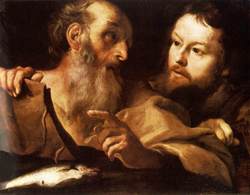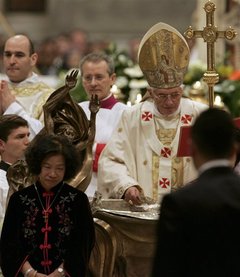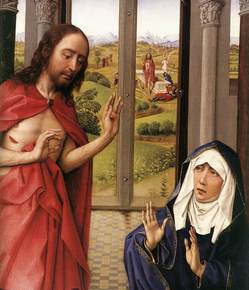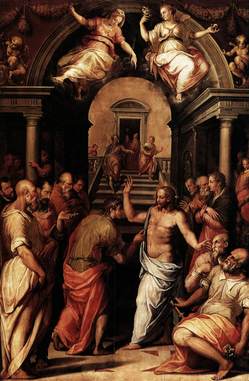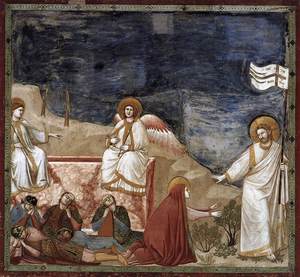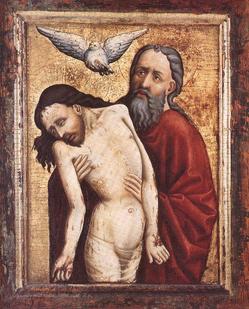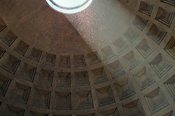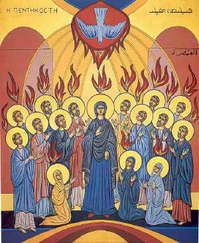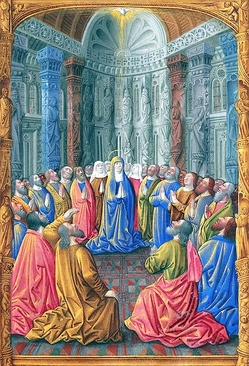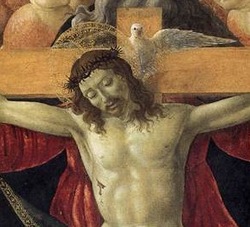The Second Sunday of Easter has many names, as noted
in the title of this post. In some places the theme of mercy is recognized drawing us into the Lord’s bountiful mercy: John Paul II recommended the title of Divine Mercy Sunday for this day, too. The most accurate title, however, for today, is “Quasimodo
Sunday” taken from the first two words of the entrance Antiphon at Mass
that speak especially to those baptized at the Easter Vigil: Quasi modo geniti infantes, rationabile, sine dolo lac concupiscite ut in eo
crescatis in salutem si gustastis quoniam dulcis Dominus. (As newborn babes,
alleluia, desire the rational milk without guile, alleluia, alleluia, alleluia.
Rejoice to God our helper. Sing aloud to the God of Jacob (1 Peter 2:2).)
second Sunday following Easter is the day on which the newly baptized
officially put away their white robes, it is therefore known liturgically as
“Dominica in albis depositis” or the “Sunday of putting away the
albs.”
attention on the doubts of Saint Thomas at hearing the news of the risen
Christ.
risen Jesus gave an additional proof that he wished the Sunday to be,
henceforth, the privileged day. He reserved the second visit he intended to pay
to all his disciples for this the eighth day since his Resurrection. During the
previous days, he has left Thomas a prey to doubt; but to-day he shows himself
to this Apostle, as well as to the others, and obliges him, by irresistible
evidence, to lay aside his incredulity. Thus does our Saviour again honour the
Sunday. The Holy Ghost will come down from heaven upon this same day of the
week, making it the commencement of the Christian Church: Pentecost will
complete the glory of this favoured day.”
